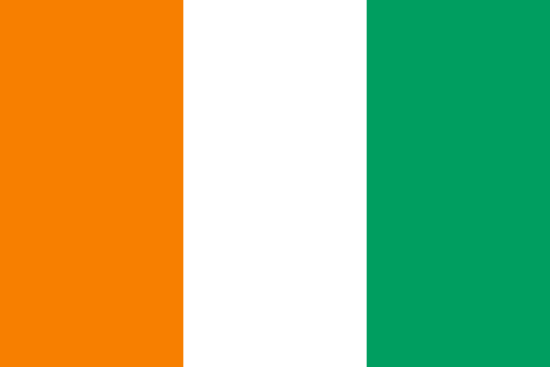"Abidjan, perle des lagunes | Abidjan, pearl of the lagoons"
About:
Abidjan, Ivory Coast, was founded in the late 19th century by the Ébrié people. It became a key seaport under French colonial rule in the 20th century. Post-independence in 1960, it grew rapidly as the economic and de facto capital of Ivory Coast. Despite political instability and civil wars in the early 21st century, Abidjan has remained the nation's major economic hub and is one of the most populous French-speaking cities in Africa.
When to visit:
Abidjan, the vibrant economic hub of Côte d'Ivoire, boasts a tropical climate with two distinct seasons. The best time to visit this bustling city is during the dry season, which typically runs from November to March. During this period, visitors can enjoy sunny days, lower humidity levels, and minimal rainfall, making it ideal for exploring the city's attractions and outdoor activities. However, it's important to note that popular tourist sites may be more crowded during this peak season, so plan your trip accordingly.
When to avoid:
The worst time to travel to Abidjan, Côte d'Ivoire on a holiday would typically be during the rainy season, which occurs from May to July and October to November. During these months, heavy rainfall can lead to flooding, transportation disruptions, and increased risk of waterborne diseases. Tourist attractions may also be less enjoyable to visit due to the wet weather. It is advisable for travelers to plan their trip to Abidjan during the dry season from December to March for a more pleasant and hassle-free holiday experience.
"Rainy Season (June–July)"
In Abidjan, the wettest period is from June to July. Average temperatures range from 24°C to 28°C. Rainfall can reach up to 500mm in June, and cloud cover is extensive, with limited sunlight. The city is often overcast, with frequent heavy showers and high humidity. An average day for a visitor during this period would likely involve indoor activities or short excursions during the less rainy parts of the day. Despite the rain, the city's vibrant culture and indoor attractions remain accessible.
"Hot Season (February–April)"
In Abidjan, the warmest part of the year typically occurs between February and May. During this period, the average high temperatures range from 30°C to 32°C (86°F to 89.6°F). Rainfall is relatively low, especially in February and March, with an average of 50-90mm per month, but it starts to increase by April and May as the rainy season approaches.
The region experiences a tropical monsoon climate, so humidity is generally high throughout the year, but it can be slightly lower during these warmer months, ranging from 70% to 80%.
During the warmest part of the year, the city usually enjoys an average of 6-7 hours of sunlight per day, with cloudiness varying. Some days can be partly cloudy, while others can be clear, especially in the earlier part of this period.
For a visitor, a typical day during these warm months would feel hot, especially in the afternoon. The heat combined with the high humidity can make it feel quite sticky and sultry. Mornings and evenings are slightly cooler and more comfortable. Despite the heat, it's a good time to enjoy the city's outdoor activities and attractions, just remember to stay hydrated and wear sun protection.
Language:
In Abidjan, the largest city in Côte d'Ivoire, the most commonly spoken language is French, which is the official language of the country. In addition to French, many locals also speak indigenous languages, with Baoulé being the most prevalent. Other languages spoken include Dioula, Anyin, and Cebaara Senufo.




